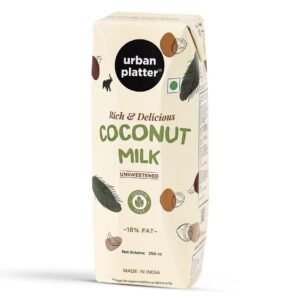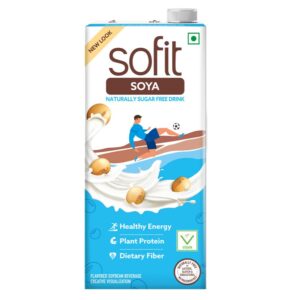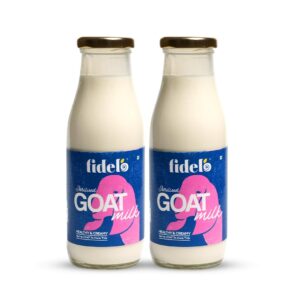In this post you will see the best milks in india.
1.Cow & Buffalo milk
Cow Milk
Appearance and Texture:
- Cow milk has a lighter, slightly yellowish hue due to the presence of carotene.
- It is thinner in consistency, which makes it easier to digest and suitable for direct consumption.
Nutritional Profile:
- Fat Content: Cow milk generally has lower fat content, around 3-4%, which makes it less creamy than buffalo milk.
- Protein: Contains about 3.2 grams of protein per 100 ml, making it a good option for those needing moderate protein intake.
- Carbohydrates: Provides lactose, a natural sugar that aids in energy production.
- Minerals: High in calcium and potassium, essential for bone health and muscle function.
Digestibility:
- Due to its lower fat content and softer protein structure, cow milk is easily digestible, making it ideal for infants and the elderly.
- Its lighter nature also reduces the risk of bloating or stomach discomfort.
Benefits:
- Supports bone and teeth health with its high calcium content.
- Rich in vitamin D, aiding in the absorption of calcium and boosting immunity.
- The lower fat content is beneficial for those aiming to maintain or reduce weight.
Uses:
- Commonly used in direct consumption, cereals, tea, coffee, and smoothies.
- Ideal for people seeking lighter dairy options and those with sensitive digestion.
Buffalo Milk
Appearance and Texture:
- Buffalo milk has a creamy white appearance and is thicker due to higher fat content.
- Its rich consistency adds to the creaminess and makes it feel more substantial.
Nutritional Profile:
- Fat Content: Contains about 6-8% fat, making it creamier and more calorie-dense.
- Protein: Higher protein content than cow milk, averaging around 4.5 grams per 100 ml.
- Carbohydrates: Slightly less lactose than cow milk but still provides a good energy source.
- Minerals: High levels of calcium, magnesium, and phosphorus enhance bone strength.
Digestibility:
- Buffalo milk is slower to digest due to its higher fat and protein content.
- It may not be as suitable for young children, elderly individuals, or those with slower digestion.
Benefits:
- Its higher fat content helps build energy and is beneficial for individuals with higher calorie needs.
- The high protein level makes it ideal for bodybuilders and those needing increased protein intake.
- Rich in antioxidants like tocopherols, which support heart health.
Uses:
- Widely used in making dairy products like butter, ghee, paneer, and cheese.
- Often preferred in Indian desserts and sweets due to its rich, creamy texture.
- An excellent choice for those looking to bulk up or with higher energy needs.
2. Coconut Milk
Coconut milk, derived from the white flesh of mature coconuts, is a popular plant-based milk known for its creamy texture and tropical flavor. Widely used in Southeast Asian, Caribbean, and Indian cuisines, it is versatile in cooking, baking, and as a dairy alternative. Here’s a detailed look at coconut milk:
Types of Coconut Milk
Thick Coconut Milk:
- Obtained by directly pressing grated coconut flesh, which yields a thick, rich milk.
- Typically used in curries, sauces, and desserts where a creamy texture is desired.
Thin Coconut Milk:
- Made by adding water to the grated coconut flesh and pressing it again.
- Used in soups, lighter dishes, or when a subtler coconut flavor is preferred.
Appearance and Texture
- Color: White to off-white.
- Consistency: Thick and creamy, especially compared to other plant-based milks. Its rich, oily texture is due to the high-fat content.
Nutritional Profile
Fat Content:
- High in saturated fats, mainly medium-chain triglycerides (MCTs), which are easier to digest and quickly converted to energy.
- Contains about 21-24 grams of fat per 240 ml (1 cup), with calories varying between 200-550, depending on thickness.
Carbohydrates:
- Low in carbohydrates, making it a suitable option for low-carb or ketogenic diets.
- Contains about 6-8 grams of carbohydrates per cup, including natural sugars.
Vitamins and Minerals:
- Rich in iron, magnesium, potassium, and manganese, which support energy production, muscle function, and overall metabolic health.
- Contains modest amounts of vitamin C and E, known for their antioxidant properties.
Fiber:
- Contains a small amount of fiber (about 1-2 grams per cup) as it retains part of the coconut pulp, which aids digestion.
Health Benefits
Heart Health:
- The MCTs in coconut milk are believed to boost energy and may help raise HDL (good cholesterol) levels, which can be beneficial for heart health when consumed in moderation.
Digestive Health:
- Coconut milk contains lauric acid, a fatty acid with antimicrobial properties, which may support gut health by combating harmful bacteria.
Supports Immune Function:
- Lauric acid is also known to have antiviral and antibacterial properties, which can strengthen the immune system.
Weight Management:
- MCTs are quickly metabolized, providing an energy boost and potentially aiding in weight management, although coconut milk should be consumed mindfully due to its high calorie content.
Uses of Coconut Milk
Culinary Applications:
- Common in curries, soups, and stews, particularly in Thai, Indian, and Caribbean dishes where its creamy texture and flavor enhance the dish.
- Used in desserts such as rice pudding, ice cream, smoothies, and baked goods for its naturally sweet, nutty flavor.
Dairy-Free Alternative:
- Used as a milk substitute for those with dairy intolerance or following a vegan diet.
- Adds creaminess to coffees, teas, and smoothies, offering a thicker texture than almond or soy milk.
Skin and Hair Care:
- Often used in natural skincare and hair care routines due to its moisturizing and nourishing properties.
- Coconut milk’s high-fat content and vitamins nourish the skin and hair, making it a common ingredient in DIY hair masks and moisturizers.
Key Considerations
High Calorie and Fat Content:
- Coconut milk is high in calories and saturated fats, so it’s best consumed in moderation if you’re watching your calorie or fat intake.
Allergies and Sensitivities:
- Generally safe for most people, but some may have coconut allergies, and others might experience digestive issues due to its richness.
Storage and Freshness:
- Fresh coconut milk spoils quickly and should be stored in the refrigerator. Canned or packaged versions can be stored for longer but should be refrigerated and used within 3-4 days after opening.
3.Soya Milk
Soy milk, a popular plant-based milk made from whole soybeans or soy protein isolate, is a widely consumed dairy alternative. Known for its mild, creamy flavor and impressive nutritional profile, soy milk is commonly enjoyed by those who are lactose-intolerant, vegan, or simply looking for a low-fat, protein-rich option. Here’s a detailed look at soy milk:
Production of Soy Milk
Soy milk is made by soaking, grinding, and boiling soybeans, then filtering the mixture to produce a smooth, milk-like liquid. Commercial versions often have added vitamins, minerals, and flavors to enhance taste and nutrition.
Appearance and Texture
- Color: Off-white to creamy.
- Consistency: Smooth and similar to low-fat cow’s milk, though slightly thicker depending on the formulation. It has a mild, slightly nutty taste that pairs well with various dishes and beverages.
Nutritional Profile
Protein Content:
- Rich in protein, offering around 7-8 grams per cup (240 ml), which is comparable to cow’s milk.
- Contains all essential amino acids, making it a complete protein source and an excellent option for plant-based diets.
Fat Content:
- Low in saturated fat and has a total fat content of about 4 grams per cup.
- Contains heart-healthy unsaturated fats and no cholesterol, making it beneficial for cardiovascular health.
Carbohydrates:
- Contains around 4-5 grams of carbohydrates per cup, mostly in the form of natural sugars and fiber.
- Low in sugar, especially in unsweetened versions, making it suitable for those on low-carb diets.
Vitamins and Minerals:
- Naturally high in potassium, magnesium, and calcium (especially when fortified), which support bone health and metabolic functions.
- Often fortified with B vitamins, particularly B12, which is essential for vegans who may lack this vitamin in their diet.
- Contains vitamin D when fortified, which aids in calcium absorption and bone health.
Fiber:
- Provides about 1-2 grams of fiber per cup, aiding digestion and supporting gut health.
Health Benefits
Heart Health:
- The unsaturated fats and lack of cholesterol in soy milk support heart health, and regular consumption can contribute to healthier cholesterol levels.
- The presence of isoflavones (a type of plant estrogen) may help reduce LDL (bad cholesterol), though more research is needed to fully understand this effect.
Bone Health:
- Soy milk is often fortified with calcium and vitamin D, making it beneficial for maintaining bone density and preventing osteoporosis, especially in people who avoid dairy.
Weight Management:
- Low in calories and sugar, unsweetened soy milk is a good option for weight management.
- Its high protein content can support muscle maintenance and promote a feeling of fullness, reducing hunger between meals.
Menopausal Health:
- Soy isoflavones have been studied for their potential to alleviate some menopausal symptoms, like hot flashes, due to their mild estrogenic effects. However, individual effects may vary.
Support for Lactose Intolerance and Dairy Allergies:
- Soy milk is naturally lactose-free, making it suitable for individuals who are lactose-intolerant or allergic to dairy products.
Uses of Soy Milk
Culinary Applications:
- Suitable for drinking on its own, adding to coffee, tea, smoothies, or cereals, and cooking in savory and sweet dishes.
- Works well in baked goods and as a substitute for cow’s milk in recipes due to its creamy texture and mild flavor.
Dairy Alternative for Vegan and Vegetarian Diets:
- Soy milk is one of the few plant-based milks with a protein content comparable to cow’s milk, making it a valuable protein source for vegan and vegetarian diets.
- Fortified soy milk can help meet daily calcium, vitamin D, and B12 needs, nutrients often lacking in plant-based diets.
Skincare and Hair Care:
- Due to its protein content and antioxidants, soy milk is sometimes used in DIY skincare and hair care, as it can hydrate and support skin elasticity when applied topically.
Key Considerations
Phytoestrogens (Isoflavones):
- Soy milk contains isoflavones, which mimic estrogen in the body but at much milder levels than the body’s own hormones. While these have various health benefits, some people may wish to moderate intake, especially those with certain hormone-sensitive conditions.
Allergy Awareness:
- Soy is one of the top allergens, and those allergic to soy should avoid soy milk and soy-based products.
Additives and Sweeteners:
- Commercial soy milk may contain added sugar, flavors, stabilizers, or preservatives. Opting for unsweetened, organic soy milk without additives is often a healthier choice.
Environmental Impact:
- Soy milk has a relatively low environmental impact compared to dairy milk, though some soy production is linked to deforestation. Choosing soy milk made from sustainably sourced or organic soy can help reduce environmental impact.
Varieties of Soy Milk
Unsweetened:
- Contains no added sugar and has a naturally mild flavor. Often preferred for cooking and those watching their sugar intake.
Sweetened and Flavored:
- Comes in flavors like vanilla and chocolate, appealing to those who prefer a sweeter taste, though it often contains added sugar.
Fortified:
- Fortified with calcium, vitamin D, and B12, which can help meet dietary requirements, especially on plant-based diets.
4.Oat Milk
Oat milk, a plant-based milk made by blending oats with water and then straining the mixture, has become one of the most popular dairy alternatives due to its creamy texture, naturally sweet taste, and environmentally friendly production. It’s favored by vegans, those with lactose intolerance, and people seeking a sustainable alternative to dairy. Here’s a detailed look at oat milk:
Production of Oat Milk
Oat milk is produced by blending whole rolled oats or steel-cut oats with water, then straining the mixture to remove the oat pulp, resulting in a smooth, milk-like liquid. Commercial varieties are often enriched with additional vitamins, minerals, and sometimes thickening agents to enhance texture and nutrition.
Appearance and Texture
- Color: Pale, off-white to light beige.
- Consistency: Creamy and slightly thicker than most other plant-based milks, such as almond or rice milk, which gives it a satisfying texture similar to cow’s milk.
- Flavor: Naturally mild and slightly sweet, with a subtle, oat-like flavor that works well in both sweet and savory dishes.
Nutritional Profile
Carbohydrates:
- Oat milk is relatively high in carbohydrates, containing about 16-19 grams per cup (240 ml), which includes some natural sugars from the oats.
- These carbohydrates provide a source of slow-releasing energy and fiber.
Fiber Content:
- Oat milk is a good source of soluble fiber, especially beta-glucans, which help lower cholesterol and support heart health.
- Provides around 2-4 grams of fiber per cup, depending on the brand and processing method.
Protein Content:
- Contains about 3 grams of protein per cup, lower than cow’s milk but slightly higher than some other plant-based milks, such as almond milk.
- Not a complete protein source, but it can still contribute to daily protein needs when paired with other protein sources.
Fat Content:
- Naturally low in fat, containing around 2.5-5 grams of total fat per cup. Most of this is unsaturated fat, which is beneficial for heart health.
- Some commercial varieties contain added oils (like canola or sunflower oil) to enhance creaminess, which may increase the fat content.
Vitamins and Minerals:
- Often fortified with calcium, vitamin D, B12, and riboflavin (B2) to make it comparable to dairy milk in nutrition.
- Contains small amounts of naturally occurring iron, which supports energy and red blood cell production.
Health Benefits
Heart Health:
- Rich in beta-glucans, a type of soluble fiber known to help reduce LDL (bad) cholesterol. Regular oat milk consumption can support healthier cholesterol levels and improve overall heart health.
- Low in saturated fat, with no cholesterol, making it a heart-friendly alternative to cow’s milk.
Digestive Health:
- The soluble fiber in oat milk aids digestion, promoting a healthy gut and helping to regulate blood sugar levels by slowing digestion and absorption.
- Naturally lactose-free and easy to digest for those who are lactose-intolerant or sensitive to dairy.
Bone Health:
- Fortified oat milk contains added calcium and vitamin D, essential nutrients for bone density and strength.
- B12 and riboflavin in fortified oat milk also play a role in energy production and red blood cell formation.
Blood Sugar Management:
- Though oat milk is higher in carbohydrates, the fiber content helps moderate blood sugar spikes. Still, it’s best consumed mindfully, especially for those with diabetes.
Allergy-Friendly:
- Free from common allergens like lactose, soy, and nuts, making it a suitable choice for people with multiple food sensitivities.
Uses of Oat Milk
Culinary Applications:
- Due to its creaminess, oat milk is versatile and can be used in coffee, lattes, smoothies, cereal, and baking.
- Works well in soups, sauces, and creamy dishes where its mild flavor complements both savory and sweet foods.
Frothing for Coffee and Lattes:
- Its thick texture and ability to froth make it popular in coffee drinks and matcha lattes. Barista versions of oat milk are specially formulated to steam and froth well.
Dairy Alternative in Cooking:
- Can substitute for cow’s milk in recipes like pancakes, muffins, and sauces, adding a mild, slightly sweet flavor without overpowering other ingredients.
Key Considerations
Calorie and Sugar Content:
- Naturally, oat milk contains more calories and sugars than some other plant-based milks, such as almond milk. Opt for unsweetened versions to avoid added sugars and keep calorie intake moderate.
- The higher carb content may not suit low-carb diets.
Processing Additives:
- Commercial oat milk may contain added oils, sugars, stabilizers, or gums to enhance flavor and texture. Always check labels and choose minimally processed versions if possible.
Environmental Impact:
- Considered one of the most sustainable plant-based milks, as oats require relatively low water and resources to grow compared to almonds and dairy. However, sourcing from organic and responsibly farmed oats can reduce environmental impacts further.
Gluten Sensitivity:
- While oats are naturally gluten-free, they may be contaminated with gluten during processing. Certified gluten-free oat milk is available for those with gluten sensitivity or celiac disease.
Varieties of Oat Milk
Unsweetened:
- Contains no added sugars, letting the natural oat sweetness come through. This is typically preferred for cooking and baking.
Sweetened and Flavored:
- Comes in options like vanilla and chocolate for those who enjoy a sweeter flavor, though these contain added sugar.
Barista Version:
- Formulated specifically for frothing and steaming, making it a favorite in coffee shops for lattes and cappuccinos.
Fortified:
- Most commercial oat milks are fortified with vitamins and minerals to improve their nutritional profile, making them a more complete dairy substitute.
5.Goat Milk
Goat milk is a nutrient-dense milk known for its distinctive taste and easy digestibility. Though less commonly consumed than cow’s milk, it’s a staple in many parts of the world due to its health benefits and versatility in culinary applications. Here’s a detailed description of goat milk:
Production of Goat Milk
Goat milk is collected from domesticated goats, with different breeds known for producing various volumes and qualities of milk. Goat milk has a smaller global production footprint than cow’s milk but is particularly popular in Mediterranean, Middle Eastern, and South Asian cultures, both for drinking and in cheese-making.
Appearance and Texture
- Color: Pure white due to the small size of fat globules and absence of certain carotenoids (which give cow’s milk a yellowish tinge).
- Consistency: Slightly thicker and creamier than cow’s milk, though it separates less due to smaller fat globules and natural homogenization.
- Flavor: Distinctively mild and slightly tangy, with a creamy taste that can vary depending on the goat’s diet, breed, and milk freshness.
Nutritional Profile
Protein Content:
- Comparable to cow’s milk, goat milk provides approximately 8-9 grams of protein per cup (240 ml).
- Contains all essential amino acids, making it a complete protein source that supports muscle maintenance and repair.
Fat Content:
- Higher fat content than cow’s milk, with around 8-10 grams of fat per cup, though low-fat options are available.
- The fat in goat milk has smaller globules and is naturally homogenized, making it easier to digest.
- Rich in medium-chain fatty acids (MCFAs) like caproic, caprylic, and capric acids, which are rapidly absorbed and metabolized, potentially aiding weight management and energy levels.
Carbohydrates:
- Contains around 10-11 grams of carbohydrates per cup, mostly in the form of lactose. This is slightly less than cow’s milk, which some people find easier to digest, though it’s still not ideal for those with severe lactose intolerance.
Vitamins and Minerals:
- Naturally high in calcium, magnesium, and phosphorus, supporting bone health.
- Rich in potassium and vitamin A, which contribute to heart and immune health.
- Contains more vitamin A than cow’s milk in a bioavailable form, making it beneficial for skin and vision.
- Provides higher levels of selenium and zinc, which are important for immune support.
Digestibility and Enzymes:
- Easier to digest than cow’s milk due to smaller fat globules and a lower lactose content, which many find gentler on the stomach.
- Contains less alpha-S1 casein, a protein linked to milk allergies, so it’s often tolerated better by those sensitive to cow’s milk.
Health Benefits
Digestive Health:
- Goat milk’s unique composition of protein, smaller fat globules, and MCFAs can enhance digestibility, making it easier on the stomach than cow’s milk.
- Lower lactose levels make it suitable for individuals with mild lactose intolerance, though not for those with severe lactose intolerance.
Bone Health:
- High calcium, phosphorus, and magnesium content support bone density and health, potentially reducing the risk of osteoporosis.
- Contains slightly more bioavailable calcium than cow’s milk, making it effective in meeting daily calcium requirements.
Skin and Immune Support:
- Goat milk is rich in vitamin A and other beneficial fats that support healthy skin and may have anti-inflammatory properties.
- Contains selenium, an antioxidant that boosts immune health and helps protect cells from oxidative stress.
Heart Health:
- Provides potassium, which can help regulate blood pressure.
- Contains healthy fats like MCFAs, which are more readily burned for energy rather than stored, potentially benefiting cardiovascular health.
Lowers Allergy Potential:
- Goat milk’s lower levels of alpha-S1 casein (a common allergenic protein in cow’s milk) make it easier to tolerate for those with sensitivities. However, it is still not suitable for people with a severe dairy allergy.
Uses of Goat Milk
Drinking and Cooking:
- Goat milk can be consumed on its own or added to coffee, tea, and smoothies. Its creamy texture makes it a versatile ingredient for various recipes, including sauces, soups, and desserts.
- Can be used in baking as a substitute for cow’s milk, adding a rich, slightly tangy flavor.
Dairy Products:
- Widely used in making cheese (such as feta, chèvre, and ricotta), yogurt, and kefir. Goat cheese is especially popular for its unique flavor and smooth texture.
- Used in making butter, though less commonly due to the milk’s natural homogenization, which complicates butter extraction.
Skincare Products:
- Known for its moisturizing and soothing properties, goat milk is a popular ingredient in soaps, lotions, and other skincare products. The lactic acid in goat milk acts as a gentle exfoliant, and its high-fat content helps keep skin soft and hydrated.
Key Considerations
Lactose Content:
- Goat milk contains slightly less lactose than cow’s milk, making it tolerable for some people with mild lactose intolerance. However, it’s not suitable for those with severe lactose intolerance.
Availability and Cost:
- Less widely available than cow’s milk and often more expensive due to lower production volumes and higher demand in niche markets.
Taste Differences:
- Goat milk’s flavor profile is more earthy or tangy than cow’s milk, which some people find challenging to adjust to. The flavor can also vary depending on the goat breed and diet.
Environmental Impact:
- Goats require less water and space to raise than cows, and they can thrive in diverse environments, making goat milk potentially more sustainable in areas with limited resources.
Varieties of Goat Milk
Whole Goat Milk:
- High-fat content with a rich, creamy texture, ideal for drinking and cooking.
Low-Fat or Skim Goat Milk:
- Lower in fat for those watching their fat intake but still offers many of the same benefits.
Powdered Goat Milk:
- Dehydrated and available as a powder, making it convenient for storage and travel. Can be reconstituted with water.
Raw Goat Milk:
- Available in some regions where raw milk is permitted. Known for its potential health benefits, though raw milk carries a risk of bacterial contamination and should be consumed cautiously.

Disclaimer –
We present the products to you after doing research, but still it is possible that your experience with those products may not be good.
We can hope that your experience goes well, but we can’t make promises.
Note –
Many times there are many versions of the same product, companies do this to meet the different needs of the customers. If you go to see it yourself, you may get confused, so if you want to see our recommended product, then click on its photo.
For extra info. Contact Us
Almost every time it happens that the same thing is available at different prices on different websites and marketplaces, some products are available at a good price at one place but then it cannot be trusted whether they are genuine or fraud.
If you do not want to get into such trouble and want to buy good products at the right price, then Contact Us.
If you want to buy any of these then click on them.










